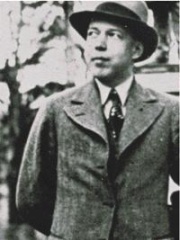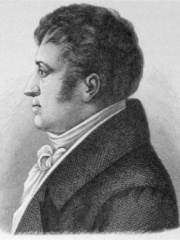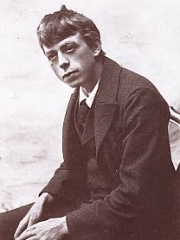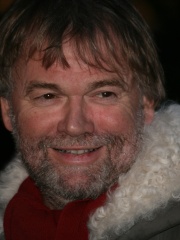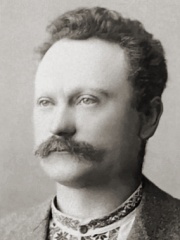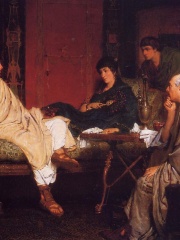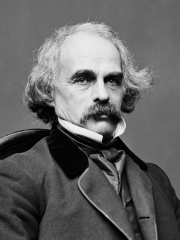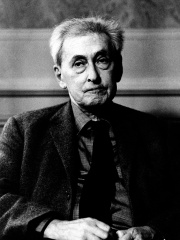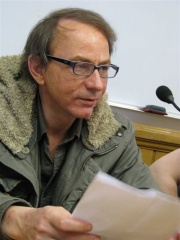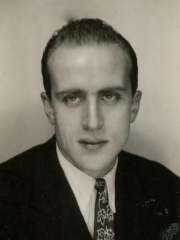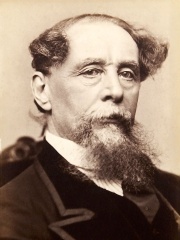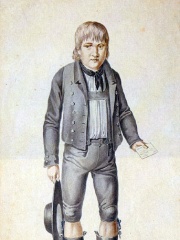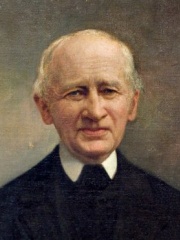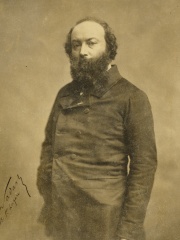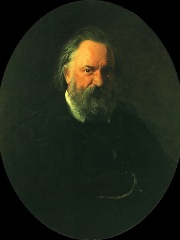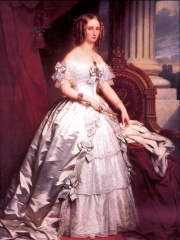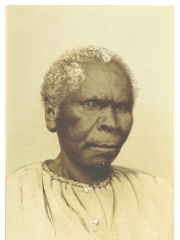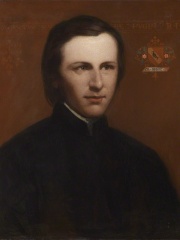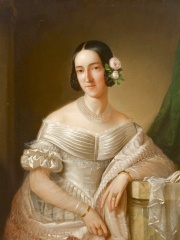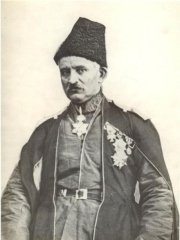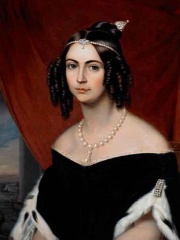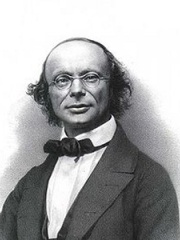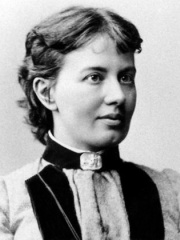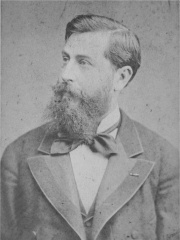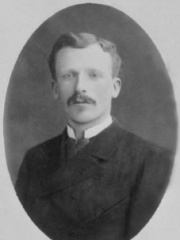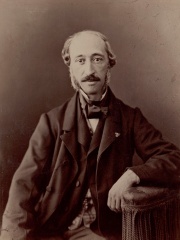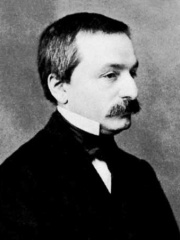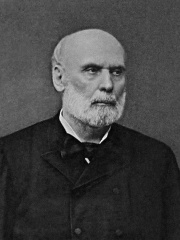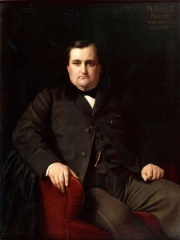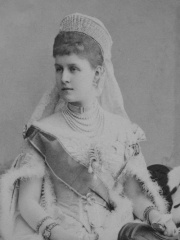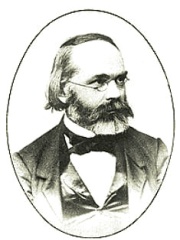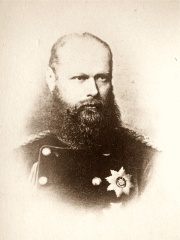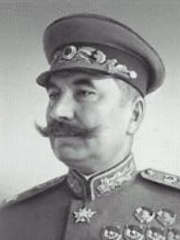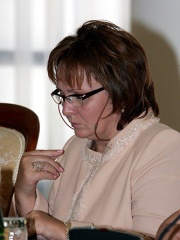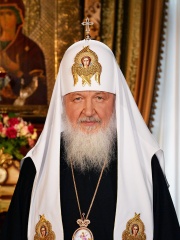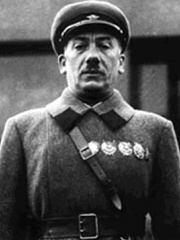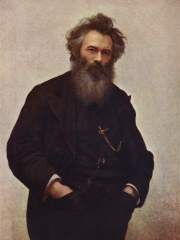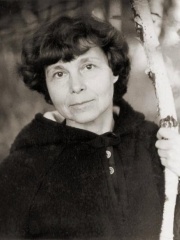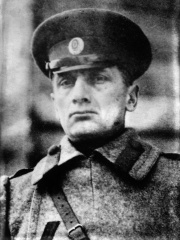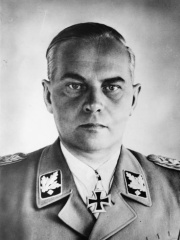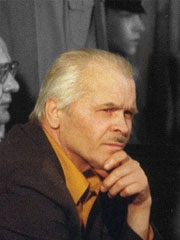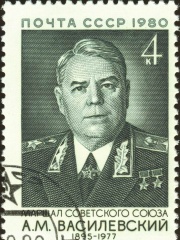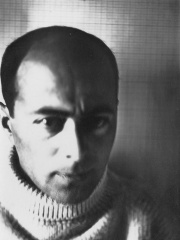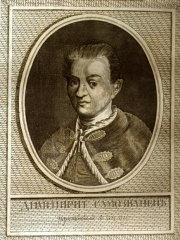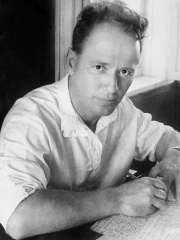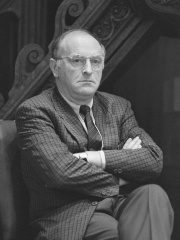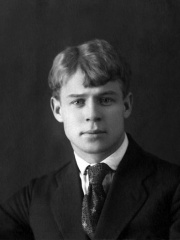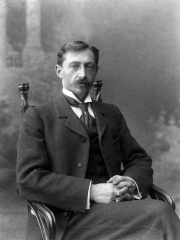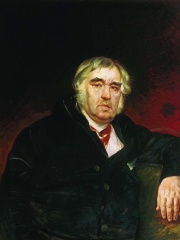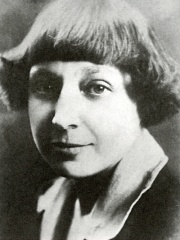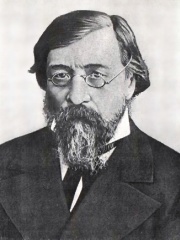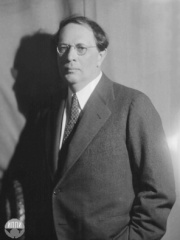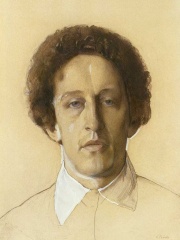Writer
Ivan Goncharov
1812 - 1891
EN.WIKIPEDIA PAGE VIEWS (PV)
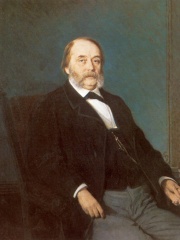
 Ivan Goncharov
Ivan Goncharov
His biography is available in 59 different languages on Wikipedia (up from 57 in 2024). Ivan Goncharov is the 517th most popular writer (up from 663rd in 2024), the 165th most popular biography from Russia (up from 217th in 2019) and the 22nd most popular Russian Writer.
Ivan Goncharov is most famous for his novel "Oblomov," which tells the story of a Russian nobleman who is too lazy to do anything.
Memorability Metrics
Page views of Ivan Goncharov by language
Among Writers
Among writers, Ivan Goncharov ranks 517 out of 7,302. Before him are Mika Waltari, August Wilhelm Schlegel, Robert Walser, Jostein Gaarder, Ivan Franko, and Tibullus. After him are Nathaniel Hawthorne, Ilya Ehrenburg, Michel Houellebecq, Boris Vian, William S. Burroughs, and Novatian.
Most Popular Writers in Wikipedia
Go to all RankingsMika Waltari
1908 - 1979
HPI: 72.59
Rank: 511
August Wilhelm Schlegel
1767 - 1845
HPI: 72.59
Rank: 512
Robert Walser
1878 - 1956
HPI: 72.59
Rank: 513
Jostein Gaarder
1952 - Present
HPI: 72.58
Rank: 514
Ivan Franko
1856 - 1916
HPI: 72.57
Rank: 515
Tibullus
50 BC - 19 BC
HPI: 72.53
Rank: 516
Ivan Goncharov
1812 - 1891
HPI: 72.53
Rank: 517
Nathaniel Hawthorne
1804 - 1864
HPI: 72.52
Rank: 518
Ilya Ehrenburg
1891 - 1967
HPI: 72.51
Rank: 519
Michel Houellebecq
1956 - Present
HPI: 72.51
Rank: 520
Boris Vian
1920 - 1959
HPI: 72.51
Rank: 521
William S. Burroughs
1914 - 1997
HPI: 72.47
Rank: 522
Novatian
220 - 258
HPI: 72.46
Rank: 523
Contemporaries
Among people born in 1812, Ivan Goncharov ranks 5. Before him are Charles Dickens, Kaspar Hauser, Johann Gottfried Galle, and Théodore Rousseau. After him are Alexander Herzen, Louise of Orléans, Truganini, Augustus Pugin, Maria Cristina of Savoy, Mirza Fatali Akhundov, and Amélie of Leuchtenberg. Among people deceased in 1891, Ivan Goncharov ranks 17. Before him are Wilhelm Eduard Weber, Sofia Kovalevskaya, Léo Delibes, Theo van Gogh, Edmond Becquerel, and Leopold Kronecker. After him are Jules Grévy, Prince Napoléon Bonaparte, Franz Miklosich, Princess Alexandra of Greece and Denmark, Carl Nägeli, and Charles I of Württemberg.
Others Born in 1812
Go to all RankingsCharles Dickens
WRITER
1812 - 1870
HPI: 85.20
Rank: 1
Kaspar Hauser
CELEBRITY
1812 - 1833
HPI: 77.34
Rank: 2
Johann Gottfried Galle
ASTRONOMER
1812 - 1910
HPI: 73.80
Rank: 3
Théodore Rousseau
PAINTER
1812 - 1867
HPI: 73.50
Rank: 4
Ivan Goncharov
WRITER
1812 - 1891
HPI: 72.53
Rank: 5
Alexander Herzen
WRITER
1812 - 1870
HPI: 71.88
Rank: 6
Louise of Orléans
POLITICIAN
1812 - 1850
HPI: 71.19
Rank: 7
Truganini
RELIGIOUS FIGURE
1812 - 1876
HPI: 71.15
Rank: 8
Augustus Pugin
ARCHITECT
1812 - 1852
HPI: 70.32
Rank: 9
Maria Cristina of Savoy
RELIGIOUS FIGURE
1812 - 1836
HPI: 68.73
Rank: 10
Mirza Fatali Akhundov
WRITER
1812 - 1878
HPI: 68.46
Rank: 11
Amélie of Leuchtenberg
COMPANION
1812 - 1873
HPI: 68.26
Rank: 12
Others Deceased in 1891
Go to all RankingsWilhelm Eduard Weber
PHYSICIST
1804 - 1891
HPI: 75.43
Rank: 11
Sofia Kovalevskaya
MATHEMATICIAN
1850 - 1891
HPI: 75.24
Rank: 12
Léo Delibes
COMPOSER
1836 - 1891
HPI: 74.61
Rank: 13
Theo van Gogh
PAINTER
1857 - 1891
HPI: 72.99
Rank: 14
Edmond Becquerel
PHYSICIST
1820 - 1891
HPI: 72.83
Rank: 15
Leopold Kronecker
MATHEMATICIAN
1823 - 1891
HPI: 72.71
Rank: 16
Ivan Goncharov
WRITER
1812 - 1891
HPI: 72.53
Rank: 17
Jules Grévy
POLITICIAN
1807 - 1891
HPI: 71.65
Rank: 18
Prince Napoléon Bonaparte
POLITICIAN
1822 - 1891
HPI: 71.60
Rank: 19
Franz Miklosich
LINGUIST
1813 - 1891
HPI: 70.75
Rank: 20
Princess Alexandra of Greece and Denmark
POLITICIAN
1870 - 1891
HPI: 70.60
Rank: 21
Carl Nägeli
BIOLOGIST
1817 - 1891
HPI: 69.73
Rank: 22
Charles I of Württemberg
POLITICIAN
1823 - 1891
HPI: 69.24
Rank: 23
In Russia
Among people born in Russia, Ivan Goncharov ranks 165 out of NaN. Before him are Semyon Budyonny (1883), Lyudmila Putina (1958), Patriarch Kirill of Moscow (1946), Genrikh Yagoda (1891), Ivan Shishkin (1832), and Sofia Gubaidulina (1931). After him are Alexander Kolchak (1874), Felix Steiner (1896), Anatoly Dyatlov (1931), Aleksandr Vasilevsky (1895), El Lissitzky (1890), and False Dmitry I (1581).
Others born in Russia
Go to all RankingsSemyon Budyonny
MILITARY PERSONNEL
1883 - 1973
HPI: 72.85
Rank: 159
Lyudmila Putina
POLITICIAN
1958 - Present
HPI: 72.74
Rank: 160
Patriarch Kirill of Moscow
RELIGIOUS FIGURE
1946 - Present
HPI: 72.65
Rank: 161
Genrikh Yagoda
POLITICIAN
1891 - 1938
HPI: 72.59
Rank: 162
Ivan Shishkin
PAINTER
1832 - 1898
HPI: 72.55
Rank: 163
Sofia Gubaidulina
COMPOSER
1931 - 2025
HPI: 72.54
Rank: 164
Ivan Goncharov
WRITER
1812 - 1891
HPI: 72.53
Rank: 165
Alexander Kolchak
POLITICIAN
1874 - 1920
HPI: 72.49
Rank: 166
Felix Steiner
MILITARY PERSONNEL
1896 - 1966
HPI: 72.47
Rank: 167
Anatoly Dyatlov
ENGINEER
1931 - 1995
HPI: 72.47
Rank: 168
Aleksandr Vasilevsky
MILITARY PERSONNEL
1895 - 1977
HPI: 72.42
Rank: 169
El Lissitzky
ARTIST
1890 - 1941
HPI: 72.35
Rank: 170
False Dmitry I
POLITICIAN
1581 - 1606
HPI: 72.34
Rank: 171
Among Writers In Russia
Among writers born in Russia, Ivan Goncharov ranks 22. Before him are Mikhail Sholokhov (1905), Joseph Brodsky (1940), Sergei Yesenin (1895), Vladimir Vysotsky (1938), Ivan Bunin (1870), and Yevgeny Zamyatin (1884). After him are Alexander Herzen (1812), Ivan Krylov (1769), Marina Tsvetaeva (1892), Nikolay Chernyshevsky (1828), Aleksey Nikolayevich Tolstoy (1883), and Alexander Blok (1880).
Mikhail Sholokhov
1905 - 1984
HPI: 74.46
Rank: 16
Joseph Brodsky
1940 - 1996
HPI: 73.53
Rank: 17
Sergei Yesenin
1895 - 1925
HPI: 73.53
Rank: 18
Vladimir Vysotsky
1938 - 1980
HPI: 73.06
Rank: 19
Ivan Bunin
1870 - 1953
HPI: 72.96
Rank: 20
Yevgeny Zamyatin
1884 - 1937
HPI: 72.87
Rank: 21
Ivan Goncharov
1812 - 1891
HPI: 72.53
Rank: 22
Alexander Herzen
1812 - 1870
HPI: 71.88
Rank: 23
Ivan Krylov
1769 - 1844
HPI: 71.86
Rank: 24
Marina Tsvetaeva
1892 - 1941
HPI: 71.67
Rank: 25
Nikolay Chernyshevsky
1828 - 1889
HPI: 70.40
Rank: 26
Aleksey Nikolayevich Tolstoy
1883 - 1945
HPI: 70.20
Rank: 27
Alexander Blok
1880 - 1921
HPI: 69.41
Rank: 28
